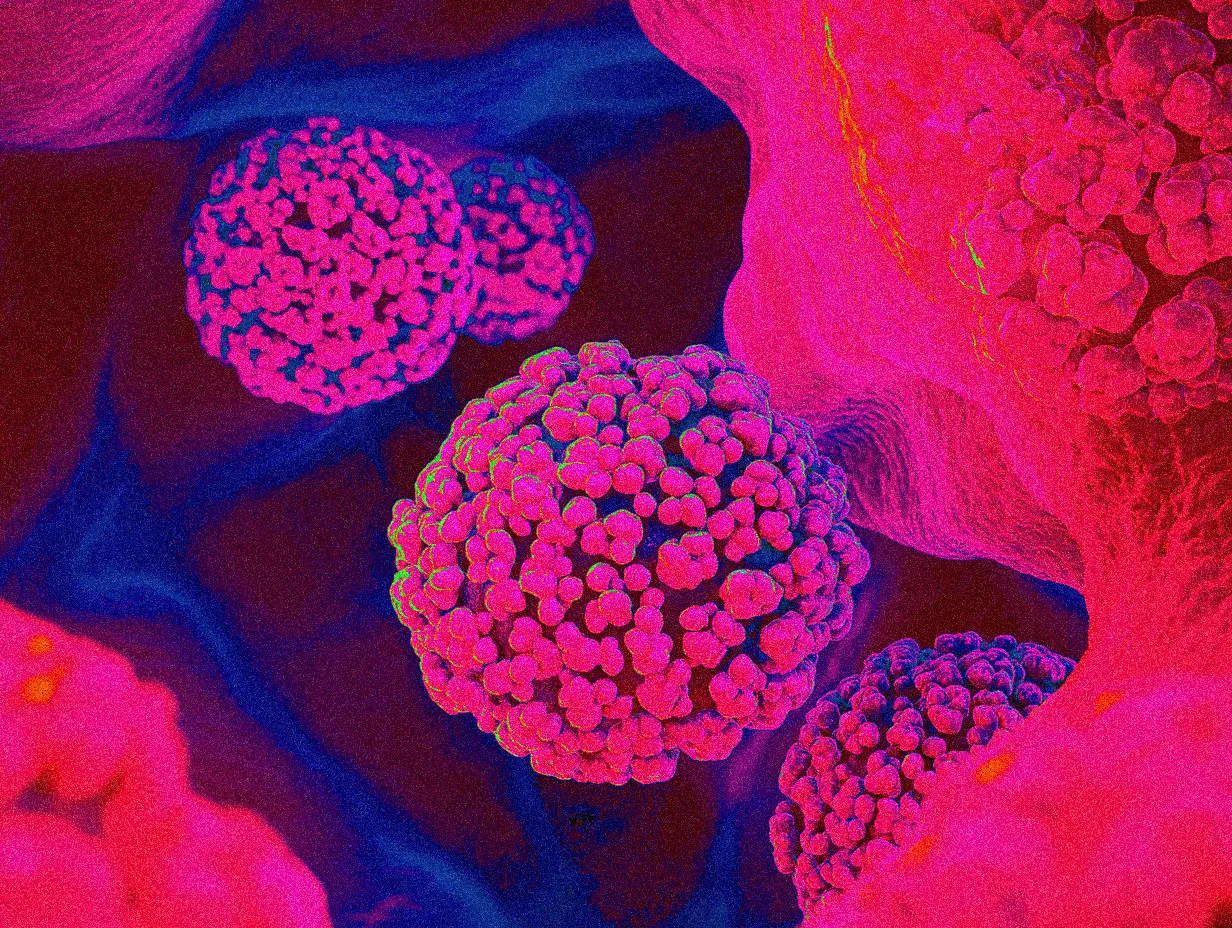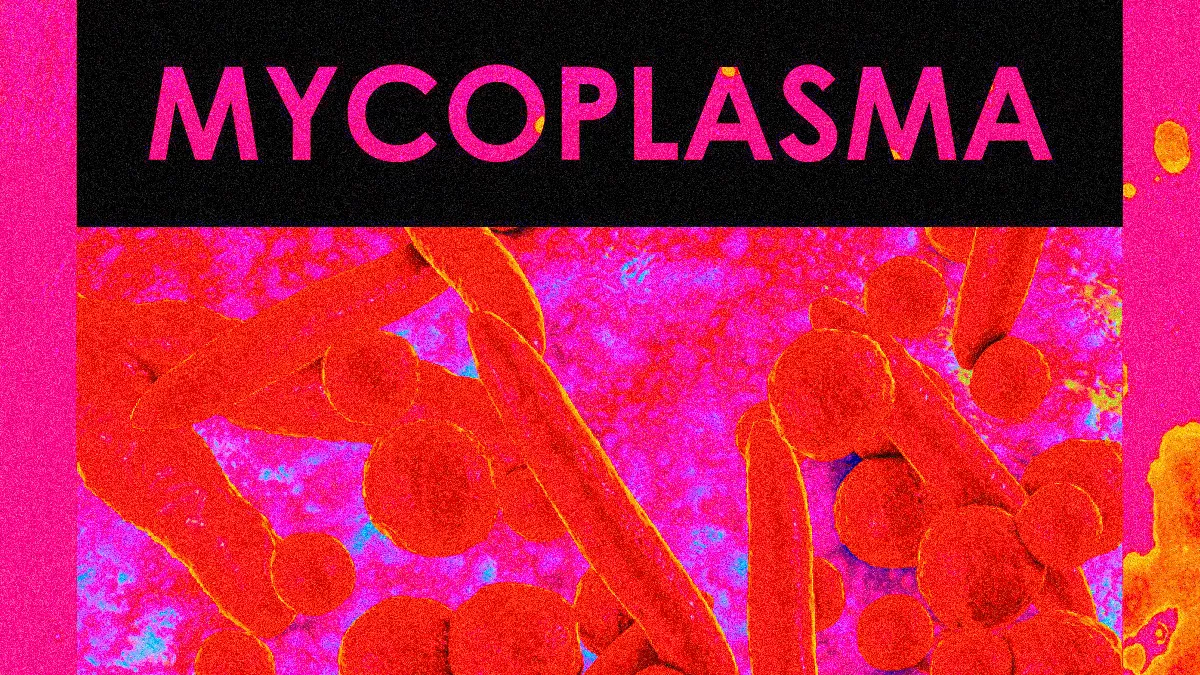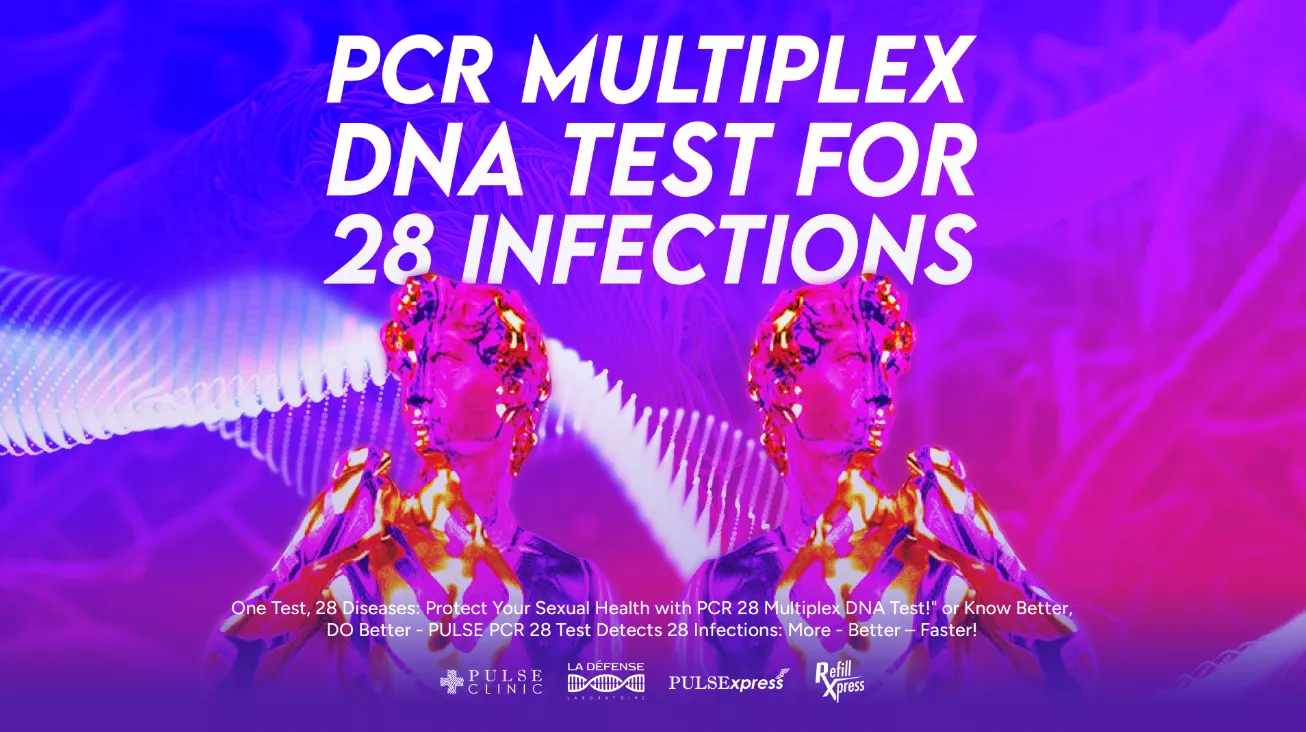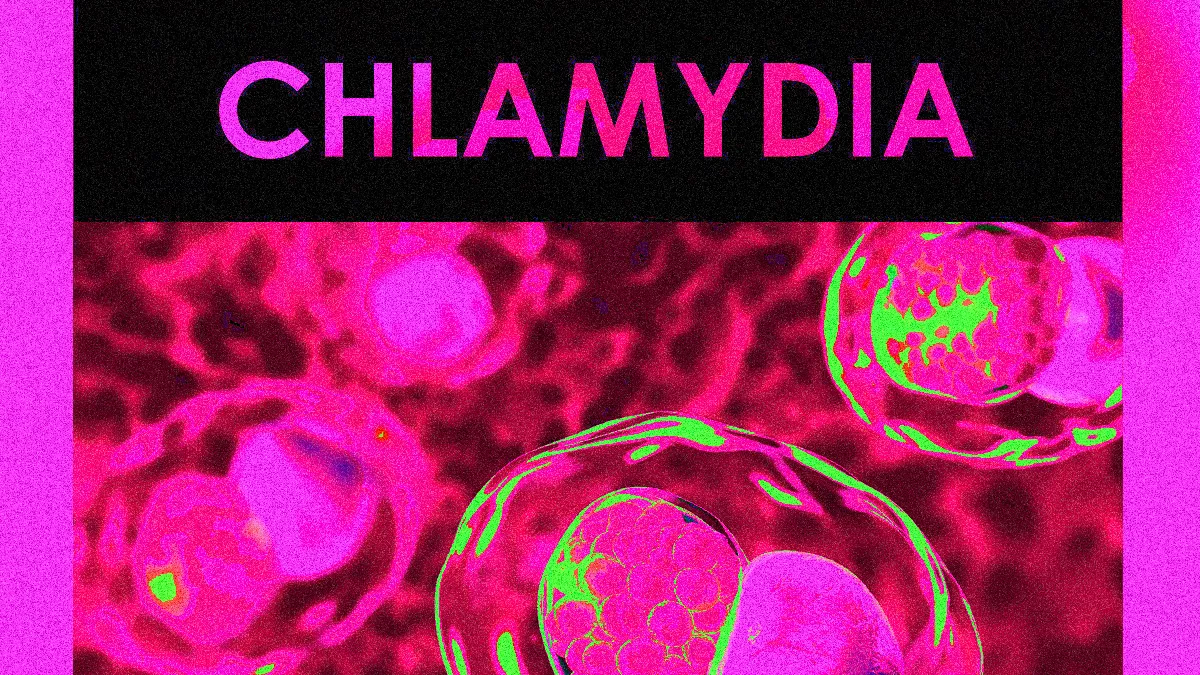Cytomegalovirus (CMV)
3618
Cytomegalovirus (CMV) is a member of the herpes virus family and can cause various health issues. Fast Test & Result for Fast Treatment Now!
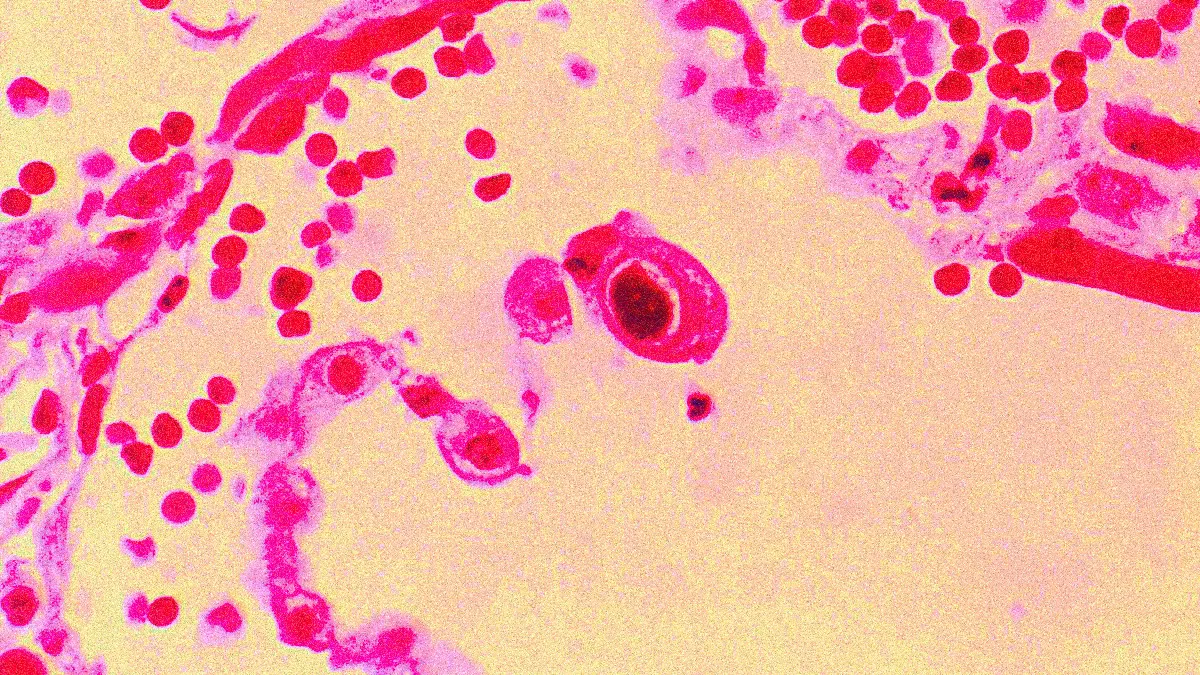
Cytomegalovirus (CMV): A Common Herpes Virus with Potential Risks
Get Tested and Treated for Cytomegalovirus (CMV) at PULSE Clinic
Contact us at info.bkk@pulse-clinic.com or chat on your preferred platform:
![]() +66 65 237 1936
+66 65 237 1936  @PULSEClinic
@PULSEClinic ![]() PulseClinic
PulseClinic
An Overview of Cytomegalovirus (CMV)
Cytomegalovirus (CMV), also known as human herpesvirus 5 (HHV-5), is a widespread herpes virus that can cause flu-like symptoms, although it often remains symptomless. However, CMV can reactivate for individuals with weakened immune systems or during pregnancy, leading to complications. Understanding CMV types, causes, symptoms, and transmission is crucial for effective prevention and management.
What Is Cytomegalovirus (CMV)?
Cytomegalovirus (CMV) is a member of the herpes virus family and can cause various health issues. While it often goes unnoticed or causes mild symptoms, it can reactivate and affect the eyes, lungs, liver, and other organs in individuals with weakened immune systems. CMV can be transmitted to the unborn baby during pregnancy, potentially leading to complications.
Types of Cytomegalovirus (CMV)
1. Primary infection: This is the initial CMV infection in an individual who has never been exposed to the virus before. It usually occurs during childhood or adolescence and may present with symptoms resembling mononucleosis, such as fever, fatigue, swollen lymph nodes, and sore throat.
2. Reactivation: After the primary infection, the virus remains dormant (latent) in the body. In certain situations where the immune system becomes weakened or compromised, such as in individuals with HIV/AIDS or those undergoing organ transplantation, the virus can reactivate and cause symptomatic infection.
3. Congenital infection: CMV can be transmitted from a mother to her unborn baby during pregnancy. This is known as congenital CMV infection. Infants infected with CMV at birth may not show symptoms at birth, but they can develop complications later on, such as hearing loss, vision problems, developmental delays, and intellectual disabilities.
4. Silent infection: Some individuals may become infected with CMV but never experience any symptoms. This is known as a silent or asymptomatic infection. However, even without symptoms, the virus can still be present in the body and potentially be transmitted to others.
It's important to note that each type of CMV infection has its implications and considerations. If you have concerns about CMV or suspect an infection, it's advisable to consult with a healthcare professional for proper diagnosis and guidance.
What are the Causes of Cytomegalovirus (CMV)
CMV spreads through bodily fluids, such as saliva, urine, blood, and breast milk. Transmission can occur through close contact, sexual activity, organ transplantation, blood transfusions, and vertical transmission from an infected mother to her baby.
1. Direct contact with infected bodily fluids: CMV is primarily transmitted through close contact with infected bodily fluids, such as saliva, urine, blood, semen, vaginal fluids, and breast milk. This can occur through activities like kissing, sexual contact, sharing utensils or toothbrushes or coming into contact with contaminated surfaces.
2. Congenital transmission: CMV can be transmitted from an infected mother to her unborn baby during pregnancy. This can happen when the mother becomes infected with CMV for the first time during pregnancy or if she experiences a reactivation of a previous CMV infection.
3. Transfusion or transplantation: CMV can be transmitted through blood transfusions or organ transplantation. If the donated blood or organs come from an infected individual, the virus can be passed on to the recipient.
4. Occupational exposure: Healthcare workers, especially those in close contact with infected patients, may be at a higher risk of CMV infection due to potential exposure to infected bodily fluids.
5. Sexual transmission: Although CMV is not typically considered a sexually transmitted infection, it can be transmitted through sexual contact, particularly if there is direct contact with infected genital secretions.
Window Period of Cytomegalovirus (CMV)
- The window period for CMV can vary significantly, typically ranging from 3 to 12 weeks after exposure.
- Some individuals may not show symptoms for several months, or even years, after infection.
Who Does Cytomegalovirus (CMV) Affect?
Cytomegalovirus (CMV) can affect different populations in various ways. Here are the key points about who CMV can affect:
1. General population: CMV can infect individuals of all ages, genders, and ethnicities. It is highly prevalent worldwide, with a significant portion of the population carrying the virus.
2. Pregnant women: CMV can be transmitted from a pregnant woman to her unborn baby, leading to congenital CMV infection. This can occur if the mother becomes infected with CMV for the first time during pregnancy or if there is a reactivation of a previous infection. Congenital CMV infection can result in various complications for the baby.
3. Individuals with weakened immune systems: CMV can cause more severe symptoms and complications in individuals with weakened immune systems. This includes people living with HIV/AIDS, those undergoing organ transplantation, individuals receiving immunosuppressive therapy, and patients with certain medical conditions that compromise their immune function.
4. Newborns and infants: Infants who acquire CMV at birth or through breast milk may develop symptoms and complications associated with congenital CMV infection. These can include hearing loss, developmental delays, vision problems, and other long-term health issues.
5. Healthcare workers and caregivers: Individuals who work in healthcare settings or provide care to individuals with CMV, especially those with weakened immune systems, may be at an increased risk of exposure to the virus.
6. People engaging in risky sexual behaviors: Certain sexual behaviors, such as having multiple sexual partners or engaging in unprotected sexual intercourse, can increase the risk of CMV transmission.
It's important to note that while CMV can affect these populations, not everyone infected with CMV will experience symptoms or complications. However, understanding the specific groups at higher risk can help in implementing preventive measures and providing appropriate care for those affected.
What are the Symptoms of Cytomegalovirus (CMV)?
Symptoms of CMV in individuals with a healthy immune system:
- Most people with a healthy immune system do not experience any symptoms.
- Some individuals may have flu-like symptoms, such as fever, fatigue, muscle aches, and headache.
- Swollen glands (lymph nodes) may be present.
- Sore throat and difficulty swallowing can occur.
- Some people may have a mild rash.
Symptoms of CMV in individuals with a weakened immune system or severe infection:
- Fatigue and weakness may be more pronounced.
- Fever may be persistent or higher in intensity.
- Rapid weight loss and loss of appetite.
- Vision problems, such as blurry vision, blind spots, or floaters (seen in CMV retinitis).
- Gastrointestinal symptoms, including diarrhea, abdominal pain, and difficulty swallowing.
- Respiratory symptoms like cough, shortness of breath, or pneumonia.
- Enlarged liver or spleen.
- Neurological symptoms, such as confusion, seizures, or paralysis (in severe cases).
Symptoms of Congenital CMV (in babies born with CMV)
- Small size at birth or low birth weight.
- Yellowing of the skin or jaundice.
- Enlarged liver or spleen.
- Pneumonia or respiratory distress.
- Feeding difficulties and failure to thrive.
- Hearing loss or deafness.
- Developmental delays or intellectual disabilities.
It's important to remember that not everyone infected with CMV will experience symptoms, and the severity of symptoms can vary widely. If you suspect a CMV infection or experience any concerning symptoms, it's best to consult a healthcare professional for evaluation and guidance.
Contact us at info.bkk@pulse-clinic.com or chat on your preferred platform:
![]() +66 65 237 1936
+66 65 237 1936  @PULSEClinic
@PULSEClinic ![]() PulseClinic
PulseClinic
All PULSE Clinics in Thailand provide the most comprehensive PCR Tests for 28 infections
to give you peace of mind and fast treatment
Trust PULSE CLINIC to take care of your health like other 45000 people from over 130 countries. We provide discreet professional service with high privacy. Here to help, not to judge.
HIV and Cytomegalovirus
CMV can cause additional complications in individuals with advanced HIV, affecting the eyes, digestive system, and nervous system and causing weight loss, fatigue, and visual disturbances.
HIV (human immunodeficiency virus) and cytomegalovirus (CMV) are two distinct viral infections that can have a significant impact on the immune system. Here is more information on the relationship between HIV and CMV:
1. HIV and susceptibility to CMV: HIV weakens the immune system by targeting and destroying CD4+ T cells, which are crucial for immune function. As HIV progresses and CD4+ cell counts decline, individuals become more susceptible to various opportunistic infections, including CMV.
2. CMV as an opportunistic infection: CMV is considered an opportunistic infection in individuals with advanced HIV/AIDS. When the immune system is severely compromised, CMV can reactivate and cause more severe symptoms and complications.
3. CMV retinitis: One of the most common and serious manifestations of CMV in individuals with advanced HIV is CMV retinitis. It is an eye infection that can lead to blindness if not treated promptly. Symptoms may include blurry vision, floaters, blind spots, and eventually, loss of vision.
4. Other organ involvement: In addition to the eyes, CMV can also affect other organs in individuals with HIV/AIDS. It can cause gastrointestinal complications such as esophageal ulcers, colitis, and hepatitis. CMV pneumonia, involving the lungs, can also occur.
5. CD4+ cell count and CMV: The risk of CMV infection and related complications increases as the CD4+ cell count drops. Individuals with a CD4+ count below 50 cells/mm³ are at particularly high risk.
6. Antiretroviral therapy (ART) and CMV: The use of antiretroviral therapy is essential in managing HIV infection and can help restore immune function. Effective ART can reduce the risk and severity of CMV-related complications by improving immune health.
7. CMV screening and monitoring: In individuals with HIV, CMV screening may be conducted to assess the presence of the virus and monitor its activity. This is especially important for those with a low CD4+ count or other risk factors.
8. Treatment: Antiviral medications are used to manage CMV infections in individuals with HIV/AIDS. These medications can help control the replication of the virus, prevent the progression of CMV-related complications, and improve overall health outcomes.
Who Is at Higher Risk for CMV?
CMV can affect individuals of any age and ethnicity. However, pregnant individuals, newborns, and people with weakened immune systems are at higher risk of developing complications from CMV.
How Is Cytomegalovirus Diagnosed?
CMV can be diagnosed through blood, urine, or saliva tests. Testing is typically conducted when individuals have symptoms, a weakened immune system or newborns show signs of congenital CMV.
Is Cytomegalovirus (CMV) an STD?
Although CMV can be transmitted through sexual contact, it is not classified as a sexually transmitted infection (STI) like some forms of herpes simplex.
Ways CMV Is Transmitted:
1. Direct contact with infected bodily fluids: CMV can be transmitted through direct contact with infected bodily fluids such as saliva, urine, blood, semen, vaginal fluids, and breast milk.
2. Sexual contact: Engaging in sexual activity with an infected individual can transmit CMV. The virus can be present in genital secretions, so unprotected sexual intercourse or oral-genital contact with an infected partner can lead to transmission.
3. Maternal-fetal transmission: A pregnant woman with CMV infection can transmit the virus to her unborn baby during pregnancy. This can occur through the placenta or during childbirth, posing a risk of congenital CMV infection to the infant.
4. Organ transplantation or blood transfusion: CMV can be transmitted through organ transplantation or blood transfusion from an infected donor. However, stringent screening processes and preventive measures are in place to minimize this risk.
5. Childcare settings: CMV can spread easily in settings with young children, such as daycare centers and preschools, where close contact and sharing of toys and objects can occur. Infected children can shed the virus in their bodily fluids, increasing the risk of transmission to other children and caregivers.
6. Occupational exposure: Healthcare workers, particularly those involved in direct patient care, may be at higher risk of CMV transmission due to potential exposure to infected bodily fluids. This includes exposure to blood, saliva, or urine during procedures or through accidental needlestick injuries.
7. Sharing personal items: Sharing personal items like toothbrushes, utensils, or drinking glasses with an infected person can also facilitate CMV transmission, as the virus can be present in their saliva or other bodily fluids.
It's important to note that CMV is not highly contagious through casual contact, such as hugging or kissing. However, practicing good hygiene, including regular handwashing and avoiding close contact with infected bodily fluids, can help reduce the risk of CMV transmission.
What are the treatments for CMV?
Treatment for CMV depends on the severity of the infection and the individual's overall health condition. In healthy individuals with mild or asymptomatic CMV infections, treatment is generally unnecessary, as the immune system can control the virus independently. However, for individuals with weakened immune systems or those experiencing severe symptoms, treatment options may include:
1. Antiviral Medications: Antiviral drugs, such as ganciclovir, valganciclovir, foscarnet, or cidofovir, may be prescribed to help suppress CMV replication and reduce the severity of symptoms. Depending on the specific situation, these medications can be administered orally, intravenously, or through injections.
2. Prevention of Complications: Individuals at high risk of CMV-related complications, such as transplant recipients or those with advanced HIV/AIDS, may be prescribed long-term antiviral prophylaxis to prevent CMV reactivation and its associated complications.
3. Supportive Care: Managing the symptoms and providing supportive care is essential for individuals with CMV. This may include rest, hydration, pain relievers, and fever reducers to alleviate discomfort.
4. Treatment for Congenital CMV: Infants born with congenital CMV may require specific interventions based on the severity of their symptoms and the organs affected. This may include antiviral medications, hearing evaluations, and early intervention services to address developmental delays.
It is important to note that treatment decisions should be made in consultation with healthcare professionals who can assess the individual's condition, immune status, and potential risks associated with treatment. Regular monitoring and follow-up visits are also necessary to evaluate the response to treatment and adjust the approach as needed.
Fast Test & Result for Fast Treatment
PCR Multiplex DNA Test for 28 Infections 




Our STD PCR Multiplex test offers advanced technology to detect up to 28 infections, including Gonorrhea, Chlamydia, Syphilis, Herpes Simplex, Trichomonas, and Candida strains, all in one test. It can identify infections in various anatomical areas, such as the throat, urethra, anorectal region, vagina, cervix, sperm, and skin lesions. For urethral infections, the Urine PCR is recommended, while the Throat Swab PCR is ideal after oral sex. Anal Swab PCR is advised for unprotected anal sex, and the Vaginal Swab PCR is recommended for vaginal sex, with staff guidance available for all tests.
| PCR for 28 Infections (STD Multiplex) | Online results | |||
| Same day** | Next day | 3 days | 7 days | |
| Throat | 14,000 THB | 11,600 THB | 10,480 THB | 9,200 THB |
| Urine | 14,000 THB | 11,600 THB | 10,480 THB | 9,200 THB |
| Anal Swab | 14,000 THB | 11,600 THB | 10,480 THB | 9,200 THB |
| Vaginal Swab | 14,000 THB | 11,600 THB | 10,480 THB | 9,200 THB |
| Cervical Swab | 14,000 THB | 11,600 THB | 10,480 THB | 9,200 THB |
| Sperm | 14,800 THB | 12,640 THB | 11,600 THB | 10,080 THB |
| Skin Lesion Swab | 14,000 THB | 11,600 THB | 10,480 THB | 9,200 THB |
| Pooling | 15,600 THB | 13,280 THB | 12,400 THB | 10,800 THB |
| PCR for 2 Infections (Gonorrhea/Chlamydia) | Same day | Next day | 3 days | 7 days |
| Throat | 5,690 THB | 4,990 THB | 3,990 THB | 3,300 THB |
| Urine | 5,690 THB | 4,990 THB | 3,990 THB | 3,300 THB |
| Vaginal and Cervical Swab | 5,690 THB | 4,990 THB | 3,990 THB | 3,300 THB |
| Rectal Swab | 5,690 THB | 4,990 THB | 3,990 THB | 3,300 THB |
| Sperm* | 6,200 THB | 5,150 THB | 4,100 THB | 3,690 THB |
| Skin lesion Swab | 5,690 THB | 4,990 THB | 3,990 THB | 3,300 THB |
PULSE Teleconsult: Connect with Doctors Anytime, Anywhere!
Sometimes you might not be able to go to a STD clinics when you have concerns about your health. PULSE now offers PULSE Telemedicine & Teleconsult, enabling both new and existing patients to connect with doctors from 16 branches across 6 countries during clinic hours for non-emergency consultations. After the consultation, medications are delivered directly to the patient's doorstep.
3 Easy Steps to Get a Teleconsult with PULSE!
- Connect with us Either on Whatsapp, Line App to Chat with us or call us to talk with our staff to request teleconsult
- Verification & Consultation Our team will guide you through the verification process before your online consultation. Our doctors provide virtual consultations via available platforms, just like a traditional visit—only from the comfort of your home! Access care anywhere, anytime.
- Get Your Treatment From Home! If your doctor determines that medication is necessary, they will provide you with a medical certificate and prescription. Your medication can be delivered to your address through our online delivery service, or in some cases, you may choose to use the prescription at a local pharmacy. For certain conditions, further lab tests may be required, and the doctor may recommend scheduling an appointment at one of our clinics near you!
Test of Cure After Treatment with Our Teleconsult Services: Ensuring Complete Recovery
After completing treatment through our teleconsult services, your doctor may recommend a PCR test as a follow-up test of cure. This is to ensure the effectiveness of the treatment and that the prescribed medication has successfully eliminated the infection. We prioritize your health by confirming that no infection remains in your system, helping to prevent persistent or recurrent infections, complications, or the development of drug resistance. Typically, this test is performed around three weeks after your final day of treatment to ensure optimal results.
Teleconsult is now available for booking through our staff at PULSE Clinic. Our team will help guide you through the process to ensure your session with one of our doctors goes as smoothly as possible for you. Contact us at info.bkk@pulse-clinic.com o/ๅr chat on your preferred platform:
![]() +66 65 237 1936
+66 65 237 1936  @PULSEClinic
@PULSEClinic ![]() PulseClinic
PulseClinic
Add us on Line and stay in touch.
Loading...
Clinic Locations
Loading...




